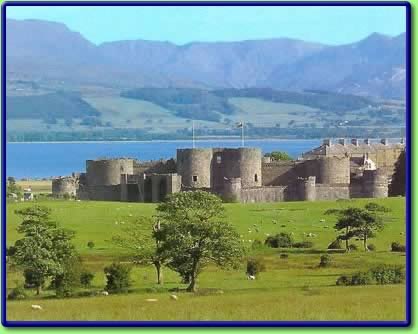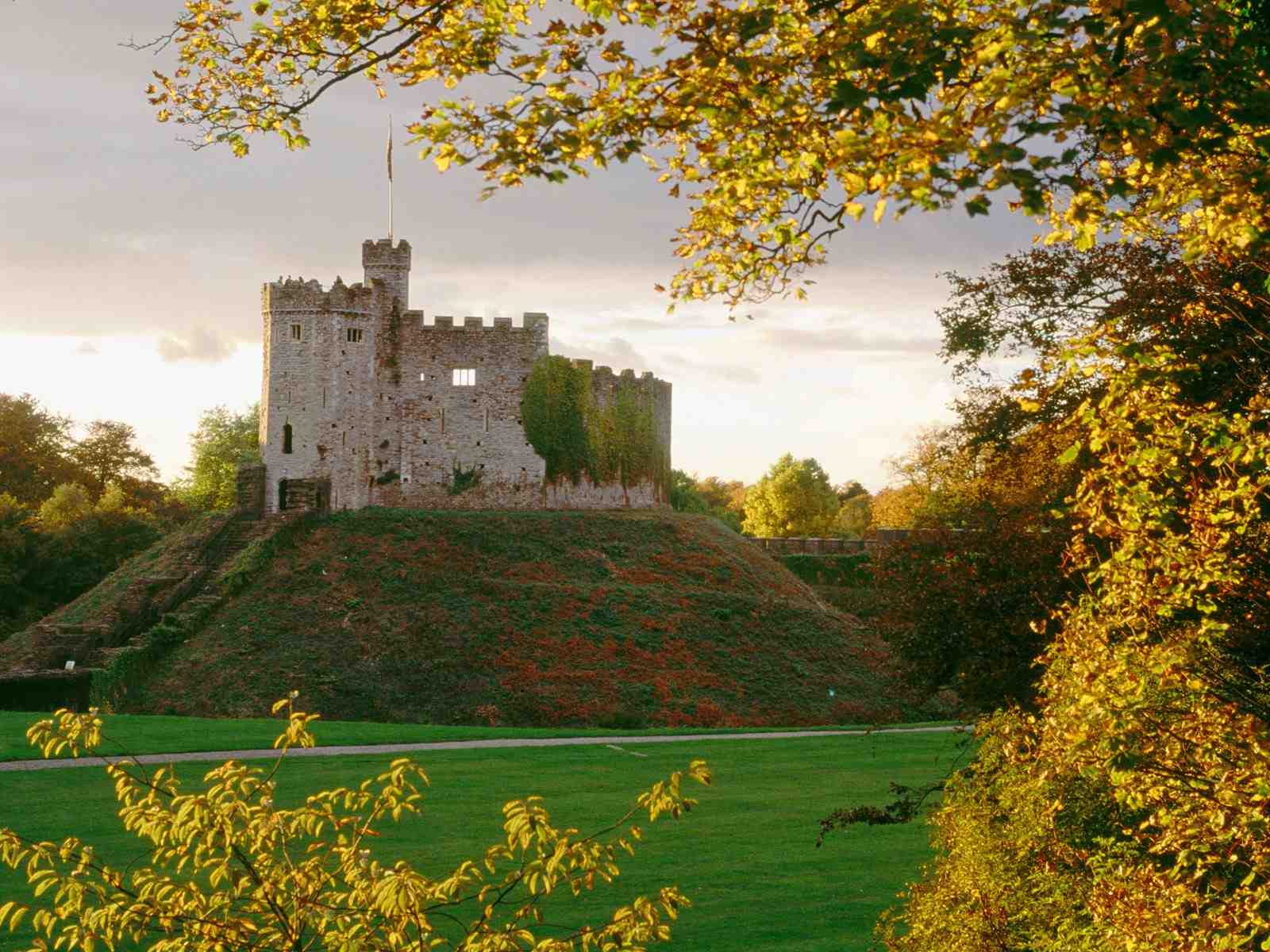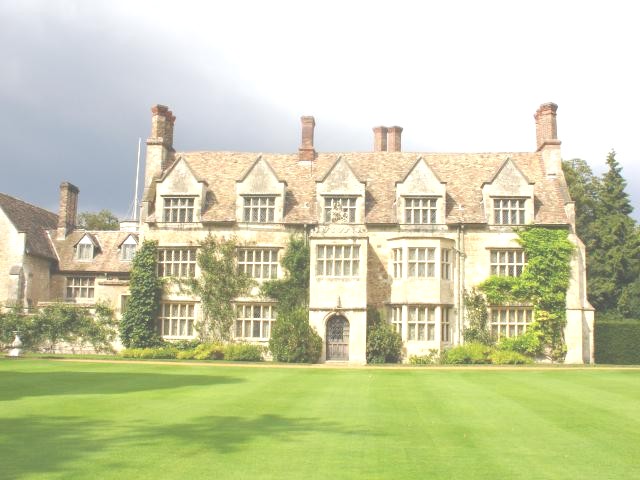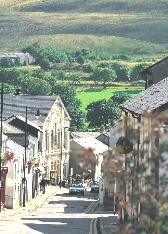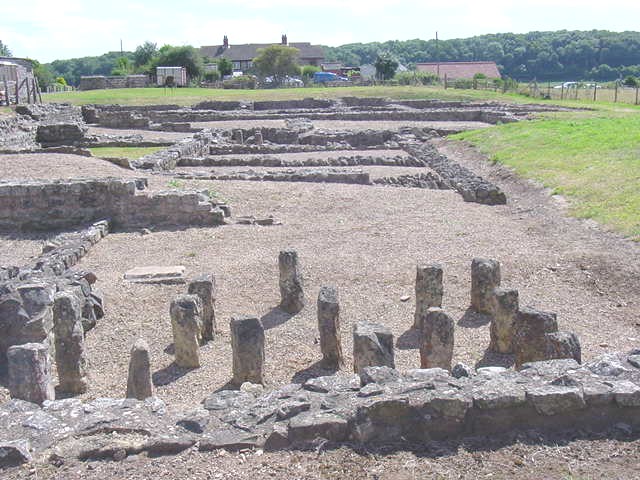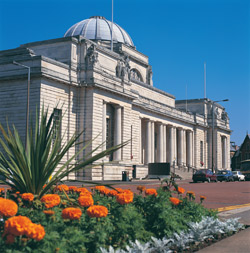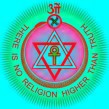
The Writings of Annie Besant
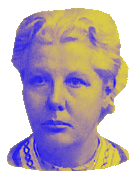
Theosophy
and the Theosophical
Society
From
a series of Lectures delivered in
I want to put before you
clearly and plainly what Theosophy means,
and what is the function of the Theosophical
Society. For we notice very often, especially with regard to the
Society, that there is a good deal of misconception touching it, and that
people do not realise the object with which it
exists, the work that it is intended to perform. It is very often looked upon
as the expression of some new religion, as though people in becoming
Theosophists must leave the religious community to which he or she may happen
to belong. And so a profound misconception arises, and many people imagine that
in some way or other it is hostile to the religion which they profess.
Now Theosophy,
looked at historically or practically, belongs to all the religions of the
world, and every religion has an equal claim to it, has an equal right to say
that Theosophy exists within
it. For Theosophy,
as the name implies, the Divine Wisdom, the Wisdom of God, clearly cannot be
appropriated by any body of people, by any Society, not even by the greatest of
the religions of the world. It is a
common property, as free to everyone as the sunlight and the air. No one can
claim it as his, save by virtue of his common humanity; no one can deny it to
his brother, save at the peril of destroying his own claim thereto. Now the
meaning of this word, both historically and practically, the Wisdom, the Divine
Wisdom, is a very definite and clear meaning; it asserts the possibility of the
knowledge of God. That is the point that the student ought to grasp; this
knowledge of God, not the belief in Him, not the faith in Him, not only vague
idea concerning Him, but the knowledge of Him, is possible to man. That is the
affirmation of Theosophy,
that is its root-meaning and its essence.And we find,
looking back historically, that this has been asserted in the various great
religions of the world. They all claim that man can know, not only that man can
believe.
Only in some of the more
modern faiths, in their own modern days, the knowledge has slipped into the
background, and the belief, the faith, looms very-large in the mind of the
believer. Go back as far as you will in the history of the past, and you will
find the most ancient of religions affirming this possibility of knowledge. In
divine science," was that which you will call
"science" nowadays, the study of the external world. But it also
included all that here we speak of as Literature, as Art, as Craft—everything,
in fact, which the human brain can study and the human fingers can
accomplish—the whole of that, in one grand generalisation,
was called " Divine Wisdom," but it was the lower divine Wisdom, the
inferior knowledge of God. Then, beside, or rather above that, came the Supreme
Knowledge, the higher, the superior, that beyond which there was no knowledge,
which was the crown of all. Now, that supreme knowledge is declared to be
" the knowledge of Him by Whom all things are known "—a phrase
indicating the Supreme Deity. It was that which was called the supreme knowledge,
or, par excellence, the Divine Knowledge, and that old Hindu thought is exactly
the same as you have indicated by the name Theosophy.
So, again, classical
students may remember that among the Greeks and the early Christians there was
what was called the Gnosis, the knowledge, the definite article pointing to
that which, above all else, was to be regarded as knowledge or wisdom. And when
you find among the Neo-Platonists this word Gnosis used, it always means, and
is defined to mean, " the knowledge of God," and the
"Gnostic" is "a man who knows God." So, again, among the
early Christians. Take such a man as Origen. He uses
the same word in exactly the same sense; for when Origen
is declaring that the Church hasmedicine for the
sinner, and that Christ is the
Good Physician who heals the
diseases of men, he goes on to say that
the Church has also
the Gnosis for the wise, and that you
cannot build the Church out
of sinners; you must build it out of Gnostics.
These are the men who
know, who have the power to help and to teach; and there can be no medicine for
the diseased, no upholder of the weak, unless, within the limits of the
religion, the Gnostic is to be found. And so Origen
lays immense stress on the Gnostic, and devotes page after page to a
description of him: what he is, what he thinks, what he does; and to the mind
of that great Christian teacher, the Gnostic was the strength of the Church,
the pillar, the buttress of the faith.
And so, coming down through the centuries, since the Christian time, you
will find the word Gnostic used every
now and again, but more often the term " Theosophist" and " Theosophy
" ; for this term came into use in the later school, the Neo-Platonists,
and became the commonly accepted word for those who claimed this possibility of
knowledge, or even claimed to know.
And a phrase regarding this is to be found in the mystic Fourth Gospel, that of S.
John, where into the mouth of the Christ the words are put, that the "
knowledge of God is eternal life "— not the faith, nor the thought, but
the knowledge—again declaring the possibility of this "Gnosis. And the same idea is found along the line
of the Hermetic Science, or Hermetic Philosophy, partly derived from
The Hermetic philosopher
also claimed to know, and claimed that in man was this divine faculty of
knowledge, above the reason, higher than the intellect. And whenever, among the thoughtful and the
learned, you find reference made to " faith," as where, in the
Epistle to the Hebrews, it is said to be " the evidence of things not
seen," the same idea comes out, and Faith, the real Faith, is only this
intense conviction which grows out of the inner spiritual being of man, the
Self, the Spirit, which justifies to the intellect, to the senses, that there
is God, that God truly exists.
And this is so strongly
felt in the East that no one there wants to argue about the existence of God;
it is declared that that existence cannot be proved by argument. " Not by
argument," it is written, " not by reasoning, not by thinking, can
the Supreme Self be known." The only proof of Him is "the conviction
in the Spirit, in the Self." And thus Theosophy,
then, historically, as you see, always makes the affirmation that man can know;
and after that supreme affirmation that God may be known, then there comes the
secondary affirmation, implied really in that, and in the fact of man's
identity of nature with the Supreme, that all things in the universe can be
known— things visible and invisible, subtle and gross. That is, so to speak, a
secondary affirmation, drawn out of the first; for clearly if in man resides
the faculty to know God as God, then every manifestation of God may be known by
the faculty which recognises the identity of the
human Spirit with the Supreme Spirit that permeates the universe at large. So
in dictionaries and in encyclopedias you will sometimes find Theosophy
defined as the idea that God, and angels, and spirits, may hold direct
communication with men; or sometimes, in the reverse form, that
men can hold communication with spirits,
and angels, and even with God Himself; and although that definition be not the
best that can be given, it has its own truth, for that is the result of the
knowledge of God, the inevitable outcome of it, the manifestation of it. The
man who knows God, and knows all things in Him, is evidently able to
communicate with any form of living being, to come into relation with anything
in the universe of which the One Life is God.
In modern days, and
among scientific people, the affirmation which is the reverse of this became at
one time popular, widely accepted — not Gnostic but " Agnostic,"
" without the Gnosis " ; that was the position taken up by Huxley and
by many men of his own time of the same school of thought. He chose the name
because of its precise signification; he was far too scientific a man to
crudely deny, far too scientific to be willing to speak positively of that of
which he knew nothing; and so, instead of taking up the position that there is
nothing beyond man, and man's reason, and man's senses, he took up the position
that man was without possibility of knowledge of what there might be, that his
only means of knowledge were the senses for the material universe, the reason
for the world of thought.
Man, by his reason,
could conquer everything in the realm of thought, might become1" mighty in
intellect, and hold as his own domain everything that the intellect could grasp
at its highest point of growth, its highest possibility of attainment. That
splendid avenue of progress Huxley, and men like Huxley, placed before humanity
as the road along which it might hope to walk, full of the certainty of
ultimate achievement. But outside that, beyond the reason in the world of
thought and the senses in the material world, Huxley, and those who thought
like him, declared that man was unable to pierce—hence " Agnostic,"
" without the Gnosis," without the possibility of plunging deeply
into the ocean of Being, for there the intellect had no plummet. Such,
according to science at one* time, was man; and whatever man might hope for,
whatever man might strive for, on, as it were, the portal of the spiritual
universe was written the legend " without knowledge."
Thither man might not
hope to penetrate, thither man's faculties might never hope to soar; for when
you have defined man as a reasoning being, you have given the highest
definition that science was able to accept, and across the spiritual nature was
written : " imagination, dream, and phantasy."
And yet there is much in
ordinary human history which shows that man is something more than intellect,
as clearly as it shows that the intellect is greater than the senses; for every
statesman knows that he has to reckon with what is sometimes called "the
religious instinct" in man, and that however coldly philosophers may
reason, however sternly science may speak, there is in man some upwelling power
which refuses to take the agnosticism of the intellect, as it refuses to accept
the positivism of the senses ;*and with that every ruler of men has to deal, with
that every statesman has to reckon. There is something* in man which from time
to time wells up with irresistible power, sweeping away every limit which
intellect or senses may strive to put in its path—the religious instinct.
And even to takethat term, that name, even that is to join on this part
of man's nature to a part of nature universal, which bears testimony in every
time, and in every place, that to every instinct in the living creature there
is some answer in the nature outside itself. There is no instinct known in
plant, in animal, in man,
to which nature does not
answer; nature, which has woven the demand into the texture of the living
creature, has always the supply ready to meet the demand; and strange indeed it
would be, well-nigh incredible, if the profoundest instinct of all in nature's
highest product on the physical plane, if that ineradicable instinct, that
seeking after God and that thirst for the Supreme, were the one and only
instinct in nature for which there is no answer in the depths and the heights
around us. And it is not so.
That argument is
strengthened and buttressed by an appeal to experience; for you cannot, in
dealing with human experience and the testimony of the human consciousness,
leave entirely out of court, silenced, as though it were not relevant, the
continual testimony of all religions to the existence of the spiritual nature
in man. The spiritual consciousness proves itself quite as definitely as the
intellectual or the sensuous consciousness proves itself—by the experience of
the individual, alike in every religion as in every century in which humanity
has lived, has thought, has suffered, has rejoiced". The religious, the
spiritual nature, is that which is the strongest in man, not the weakest; that
which breaks down the barriers of the intellect, and crushes into silence the
imperious demands of the senses; which changes the whole life as by a miracle,
and turns the face of the man in a direction contrary to that in which he has
been going all his life. Whether you take the facts of conversion, or whether
you take the testimony of the saint, the prophet, the seer, they all speak with
that voice of authority to which humanity instinctively bows down; and it was
the mark of the spiritual man when it was said of Jesus, the Prophet: " He
taught them as one having authority, and not as the scribes." For where
the spiritual man speaks, his appeal is made to the highest and the deepest
part in every hearer that he addresses, and the answer that comes is an answer
that brooks no denial and permits no questioning. It shows its own imperial
nature, the highest and the dominant nature in the man, and where the Spirit
once has spoken the intellect becomes obedient, and the senses begin to serve.
Now Theosophy,
in declaring that this nature of man can know God, bases that statement on
identity of nature. We can know—it is our continual experience— we can know
that which we share, and nothing else. Only when you have appropriated for
yourself something from the outside world can you know the similar things in
the outside world. You can see because your eye has within it the ether of
which the waves are light; you can hear because your ear has in it the ether
and the air whose vibrations are sound; and so with everything else. Myriads of
things exist outside you, and you are unconscious of them, because you have not
yet appropriated to your own service that which is like unto them in outer
nature.
And you can know God for
exactly the same reason that you can know by sight or hearing—because you are
part of God; you can know Him because you share His nature. " We are
partakers of the Divine Nature," says the Christian teacher "Thou art
That," declares the Hindu. The Sufi cries out that by love man and God are
one, and know each other. And all the religions of the world in varied phrase
announce the same splendid truth of man's Divinity.
It is on that that Theosophy
founds its affirmation that the knowledge of God is possible to man; that the
foundation, then, of Theosophy,
that the essence of its message.And the value of it
at the time when it was re-proclaimed to the world was that it was an
affirmation in the face of a denial. Where Science began to cry " agnosticism," Theosophy
came to cry out " gnosticism." At the very
same time the two schools were born into the modern world, and the
re-proclamation of Theosophy,
the supreme knowledge, was the answer from the invisible worlds to the
nescience of Science. It came at the right time, it came in the right form, as
in a few moments we shall see; but the most important thing of all is that it
came at the very moment when Science thought itself triumphant in its
nescience.
This re-proclamation,
then, of the most ancient of all truths, was the message of Theosophy to the modern
world. And see how the world has changed since that was proclaimed ! It is
hardly necessary now to make that affirmation, so universal has become the
acceptance of it. It is almost difficult to look back to the year 1875, and realise how men were thinking and feeling then. I can
remember it, because I was in it. The elder amongst you can remember it, for
the same reason.
But for theyounger of you, who have begun to think and feel in the
later times, when this thought was becoming common, you can scarcely realise the change in the intellectual atmosphere which has
come about during these last two and-thirty years. Hardly worth while is it to
proclaim it now, it is so commonplace. If now you say: " Man can know
God," the answer is: " Of course he can." Thirty-two years ago
it was: " Indeed he cannot." And that is to be seen everywhere, all
over the world, and not
only among those people who were clinging blindly to a blind faith, desperately
sticking to it as the only raft which remained for them to save them from being
submerged in materialism. It is recognised now on all
hands; literature is full of it; and it is not without significance that some
months ago The Hibbert Journal —which has in it so
much of the advanced thought of the day, for which bishops and archbishops and
learned clerics write—it is not without significance that that journal drew its
readers' attention to " the value of the God-idea in Hinduism." And
the only value of it was this, for man : that man is God, and therefore can
know God; and the writer pointed out that that was the only foundation on
which, in modern days, an edifice that could not be shaken could be reared up
for the Spirit in man.
That is the religion of
the future, the religion of the Divine Self; that the common religion, the
universal religion, of which all the religions that are living in the world
will be recognised as branches, as* sects of one
mighty religion, universal and supreme.
For just as now in
Christianity you have many a sect and many a church, just as in Hinduism we
find many sects and many schools, and as in every other great religion of the
world at the present time there are divisions between the believers in the same
religion, so shall it be—very likely by the end of this century—with all the
religions of the world; there will be only one religion—the knowledge of
God—and all religions sects under that one mighty and universal name.
And then, naturally, out
of this knowledge there must spring a large number of other knowledges
subservient to it, that which you hear so much about in Theosophical
literature, of other worlds, the worlds beyond the physical, worlds that are
still material, although the matter be of a finer, subtler kind; all that you
read about the astral, and mental, and buddhic planes, and so on—all these
lower knowledges find their places naturally, as
growing out of the one supreme knowledge. And at once you will ask: " Why
?" If you are really divine, if your Self is the same Self of which the
worlds are a partial expression, then it is not difficult to see that that Self
in you, as it unfolds its divine powers, and shapes the matter which it
appropriates in order to come in contact with all the different parts of the
universe, that that Self, creating for itself bodies, will be able to know
every material thing in the universe, just as you know the things of the
physical plane through the physical body. For it is all on the same lines: that
which enables you to know is not only body—that is the« medium between you and
the physical world—but the Knower in you is that which enables you to know, the
power of perception which is of consciousness, and not of body.
When consciousness
vanishes, all the organs of consciousness are there, as perfect as ever, but
the Knower has left them, and know-ledge disappears with him; and so, whether
it be in a swoon, in a fainting fit, in sleep, or in death, the perfect
instrument of the physical body becomes useless when the hand of the master
workman drops it. The body is only his tool, whereby he contacts the things in
a universe which is not himself; and the moment he leaves it, it is a mere heap
of matter, doomed to decay, to destruction. But just as he has that body for
knowledge here, so he has other bodies for knowledge everywhere, and in every
world he can know, he who is the Knower, and every world is made up of objects
of knowledge, which he can perceive, examine, and understand.
And the world into which
you shall pass when you go through the portal of death, that is around you at
every moment of your life here, and you only do not know it because your
instrument of knowledge there is not yet perfected, and ready there to your
hand; and the heavenly world into which you will pass out of the intermediate
world next to this, that is around you now, and you only do not know it because
your instrument of knowledge there has not yet been fashioned.
And so with worlds yet
higher, knowledge of them is possible, because the Knower is yourself and is
God, and you can create your instruments of knowledge according to your wisdom
and your will.
Hence Theosophy includes the
whole of this vast scheme or field of knowledge; and the whole of it is yours,
yours to possess at your will. Hence Theosophy should be to you
a proclamation of your own Divinity, with everything that flows therefrom; and all the knowledge that may be gathered, all
the investigations that may be made, they are all part-t of this great scheme.
And the reason why all the religions of the world teach the same, when you come
to disentangle the essence of their teaching from the shape in which they put
it, the reason that they all teach the same is that they are all giving you
fragments of knowledge of the other worlds, and these worlds are all more real
than the world in which you are; and they all teach the same fundamental
truths, the same fundamental moral principles, the same religious doctrines,
and use the same methods in order that men may come into touch with the other
worlds. The sacraments do not belong to Christianity alone, as sometimes
Christians think; every religion has its sacraments, some more numerous than
others, but all have some. For what is a sacrament? It is the earthly, the
physical representative of a real correspondence in nature; as the catechism of
the Church of England phrases it: " An outward and visible sign of an
inward and spiritual grace." It is a true definition.
A sacrament is made up
of the outer and inner, and you cannot do without either. The outer thing is
correlated to the inner, and is a real means of coming into touch with the
higher, and is not only a symbol, as some imagine.
The great churches and
religions of the past always cling to that reality of the sacrament, and they
do well. It is only in very modern times, and among a comparatively small
number of Christian people, that the sacrament has become only a symbol,
'instead of a channel of living and divine power. And much is lost to the man
who loses out of his religion the essential idea of the sacrament; for it is
the link between the spiritual and the physical, the channel whereby the
spiritual pours down into the physical vehicle.
Hence the value that all
religions put upon sacraments, and their recognition of their reality, and
their priceless service to mankind. And so with many other things in ceremonies
and rites, common to all the different faiths—the use of musical sounds, a use
which tunes the bodies so that the spiritual power may be able to manifest
through them and by them. For just as in your orchestra you must tune the
instruments to a single note, so must you tune your various bodies in order
that harmoniously they may allow the spiritual force to come through from the
higher to the lower plane. It is a real tuning, a real making of harmonious
vibrations; and the difference between the vibrations that are harmonious and
the vibrations that are discordant, from this point of view, is this : when all
the bodies vibrate together, all the particles and their spaces correspond, so
that you get solid particles, then spaces, and then solid particles, and spaces
again, corresponding through all the bodies; whereas in the normal condition
the bodies do not match in that way, and the spaces of one come against the
solid parts of the other, and so you get a block.
When sounds are used,
the mystical sounds called mantras in Hinduism, the effect of those is to
change the bodies from this condition to that, and so the forces from without
can come into the man, and the forces in him may flow out to others. That is
the value of it. You are able to produce mechanically a result
which otherwise has to be
produced by a tremendous exertion of the will; and the man of knowledge never
uses more force than is necessary in order to bring about what he desires, and
the Occultist —who is the wise man on many planes—he uses the easiest way
always to gain his object. Hence the use of music, or mantras, in every faith.
Pythagoras used music in order to prepare his disciples to receive his
teachings.
The Greek and the
Even the songs of
illiterate Christian bodies do have some effect upon them, in raising them to a
higher level, although they possess little of the true quality of the mantra.
In Theosophy you find all
these things dealt with scientifically—a mass of knowledge, but all growing out
of the original statement that man can know God.
Now it is clear that in
all that, there is nothing which a man of any faith cannot accept, cannot
study. I do not mean that he will accept everything that a Theo-sophist would
say; but I mean that the knowledge is knowledge of a kind which he will be wise
to study, and to appropriate so far as it recommends itself to his reason and
his intuition. And that is all the man need do—study. All this knowledge is
spread out for you freely: you can take it, if you will.
The Theosophical
Society, which spreads it broadcast everywhere, claims in it no
property, no proprietary rights, but gives it out freely everywhere. The books
in which much of it is written are as free to the non-Theosophist as to the
Theo-sophist. The results of
Theosophical investigation are published freely that all who choose may read.
Everything is done that can be done by the Society to make the whole thing
common property ; and nothing gives the true Theo-sophist more delight than
when he sees the Theosophical teachings coming out in some other garb which
gives them a different name, but hands them on to those who might be frightened
perhaps by the name " Theosophy."
And so, when we find a clergyman scattering broadcast to his congregation
Theosophical teaching as Christian, we say: " See, our work is bearing
fruit"; and when we find the man who does not label himself "
Theosophist" giving any of these truths to the world, we rejoice, because
we see that our work is being done.
We have no desire to
take the credit of it, nor to claim it as ours at all; it belongs to every man
who is able to see it, quite as much as it does to anyone who may call himself
" Theosophist." For the possession of truth comes of right to the man
who can see the truth, and there is no partiality in the world of intellect or
of Spirit. The only test for a man's fitness to receive is the ability to
perceive; and the only claim he has to see by the light is the power of seeing.
And that, perhaps, may
explain to you what some think strange in our Society—we have no dogmas. We do
not shut out any man because he does not believe Theosophical teachings. A man
may deny every one of them, save that of human brotherhood, and claim his place
and his right within our ranks.
But his place and his
right within our ranks are founded on the very truths that he denies; for if
man could not know God, if there were no identity of nature in every man with
God, then there would be no foundation for our reception of him, nor any reason
for welcoming him as a brother. Because there is only one life, and one nature,
therefore the man who denies is God, as is he who affirms. Therefore each has a
right to come; only the one who affirms knows why he welcomes his brother, and
the one who denies is ignorant, and knows not why he has a right within our
ranks. But those of us who try to be Theosophists in reality, as well as in
name, we understand why it is that we make him welcome, and it is based on this
sane idea, that a man can see the truth best by studying it, and not by
repeating formula that he does not understand. What is the use of putting a
dogma before a man and saying: " You must repeat that before you can come
into my Church " ?
If the man repeats it
not understanding it, he is outside, no matter how much you bring him in ; and
if he sees it, there is no need to make that as a portal to your fellowship.
And we believe, we of the Theosophical
Society, that just because the intellect can only do its best work in
its own atmosphere of freedom, truth has the best chance of being seen when you
do not make any conditions as to the right of investigation, as to the claim to
seek. To us, truth is so supreme a thing that we do not desire to bind any man
with conditions as to how, or where, or why, he shall seek it. These things, we
say, we know are true; and because we know they are true, come amongst us, even
though you do not believe them, and find out for yourself whether they be true
or not. And the man is better worth having when he comes in an unbeliever, and
wins to the knowledge of the truth, than is the facile believer who
acknowledges everything and never gets a real grip upon truth at all.
We believe that truth is
only found by seeking, and that the true bond is the love of truth, and the
effort to find it; that that is a far more real bond than the repetition of a
common creed. For the creed can be repeated by the lips, but the seeing of
truth as true can only come from the intellect and the spirit, and to build on
the intellect and the spirit is a firmer foundation than to build on the breath
of the lips. Hence our Society has no dogmas. Not that it does not stand for
any truths, as some people imagine. Its name marks out the truth for which it
stands: it is the Theosophical
Society ; and that shows its function and its place in the world—a
Society that asserts the possibility of the knowledge of God; that is its
proclamation, as we have seen, and all the other truths that grow out of that
are amongst our teachings. The Society exists to spread the knowledge of those
truths, and to popularise those teachings amongst
mankind. " But," you may say, " if it be the fact that you throw
out broadcast all your teachings, that you write them in books that every man
can buy, what is, then, the good of being a member of the Theosophical
Society ?
We should not have any
more as members than we have as non-members." That is not quite true, but
it may stand as true for the moment. Why should you come in ? For no reason at
all, unless to you it is the greatest privilege to come in, and you desire to be
among those who are the pioneers of the thought of the coming days. No reason
at all: it is a privilege. We do not beg you to come in; we only say: "
Come if you like to come, and share the
glorious privilege that we possess; but if you would rather not, stay outside,
and we will give you everything which we believe will be serviceable and useful
to you."
The feeling that brings
people into our Society is the feeling that makes the soldier spring forward to
be amongst the pioneers when the army is going forth. There are some people so
built that they like to go in front and face difficulties, so that other people
may have an easier time, and walk along a path that has already been hewn out
for them by hands stronger than their own.
That is the only reason
why you should come in : no other. Do not come to " get" ; you will
be disappointed if you do. You can " get" it outside. Come in to
give, to work, to be enrolled amongst the servants of humanity who are working
for the dawn of the day of a nobler knowledge, for the coming of the
recognition of a spiritual brotherhood amongst men. Come in if you have the
spirit of the pioneer within you, the spirit of the volunteer; if to you it is
a delight to cut the way through the jungle that others may follow, to tread
the path with bruised feet in order that others may have a smooth road to lead
them to the heights of knowledge.
That is the only
advantage of coming in : to know in your own heart that you realise
what is coming, and are helping to make it come more quickly for the benefit of
your fellow-men; that you are working for" humanity; that you are
co-workers with God, in making the knowledge of Him spread abroad on every
side; that you are amongst those to whom future centuries will look back, thanking
you that you saw the light when all men thought it was dark, and that you recognised the coming dawn when others believed the earth
was sunk in midnight. I know of no inspiration more inspiring, of no ideal that
lifts men to greater heights, of no hope that is so full of splendor, no
thought that is so full of energy, as the inspiration, and the ideal, and the
hope, and the thought, that you are working for the future, for the day that
has not yet come. There will be so many in the days to come who will see the
truth, so many in the unborn generations who will live from the hour of their
birth in the light of the Divine Wisdom. And what is it not to know that one is
bringing that nearer ? to feel that this great treasure is placed in your hands
for the enriching of humanity, and that the bankruptcy of humanity is over and
the wealth is being spread broadcast on every side ?
What a privilege to know
that those generations in the future, rejoicing in the light, will feel some
touch of thanks and gratitude to those who brought it when the days were dark,
to those whose faith in the Self was so strong that they could believe when all
other things were against it, to those whose surety of the
divine knowledge was so mighty
that they could proclaim its possibility to an agnostic world. That is the only
reason why you should come into the vanguard, that the only reason why you
should join the ranks of the pioneers. Hard work and little reward, hard words
and little praise, but the knowledge that you work for the future, and that
with the co-operation of Deity the final result is sure.
History
of the Theosophical Society
For more info on Theosophy
Try these

Cardiff Theosophical Society meetings
are informal
and there’s always a cup of tea afterwards
The Cardiff Theosophical
Society Website
The National Wales Theosophy Wesbsite
Dave’s Streetwise Theosophy
Boards
If
you run a Theosophy Group then please
Feel
free to use any material on this Website
Theosophy
Cardiff’s Instant Guide to Theosophy
One
Liners & Quick Explanations
The main criteria for the
inclusion of
links on this site is that they are
have some
relationship (however tenuous) to
Theosophy
and are lightweight, amusing or
entertaining.
Topics include Quantum Theory
and Socks,
Dick Dastardly and Legendary Blues Singers.
No
Aardvarks were harmed in the
History
of the Theosophical Society
General pages about Wales,
Welsh History
and The History of Theosophy in
Wales
Her Teachers Morya & Koot Hoomi
The
Most Basic Theosophy Website in the Universe
If you run a Theosophy Group
you can use
this as an introductory handout
Lentil burgers, a thousand
press ups before breakfast and
the daily 25 mile run may put it
off for a while but death
seems to get most of us in the end.
We are pleased to
present for your consideration, a
definitive work on the
subject by a Student of Katherine Tingley entitled
Theosophy and the Number Seven
A selection of articles
relating to the esoteric
significance of the Number 7
in Theosophy
The Spiritual Home of Urban Theosophy
The Earth Base for Evolutionary Theosophy
Classic Introductory Theosophy Text
A Text Book of Theosophy By C
What Theosophy Is From the Absolute to Man
The Formation of a Solar System The Evolution of Life
The Constitution of Man After Death Reincarnation
The Purpose of Life The Planetary Chains
The Result of Theosophical Study
An Outstanding
Introduction to Theosophy
By a student of
Katherine Tingley
Elementary Theosophy Who is the Man? Body and Soul
Body, Soul and Spirit Reincarnation Karma
Helena Petrovna Blavatsky 1831 – 1891
The Founder of Modern Theosophy
Index of Articles by
By
H P Blavatsky
Is the Desire to Live Selfish?
Ancient Magic in Modern Science
Precepts Compiled by H P Blavatsky
Obras
Por H P Blavatsky
En Espanol
Articles about the Life of H P Blavatsky
Try these if you are
looking for a
local
Theosophy Group or Centre
UK Listing of
Theosophical Groups
Worldwide
Directory of Theosophical Links

General pages about Wales,
Welsh History
and The History of Theosophy in
Wales
Wales is a
Principality within the United Kingdom
and has an eastern
border with England.
The land area is
just over 8,000 square miles.
Snowdon in North Wales is the highest mountain at 3,650 feet.
The coastline is
almost 750 miles long.
The population of Wales as at the 2001 census is 2,946,200.
Nature is infinite in space and
time -- boundless and eternal, unfathomable and ineffable. The all-pervading
essence of infinite nature can be called space, consciousness, life, substance,
force, energy, divinity -- all of which are fundamentally one.
2) The finite and the infinite
Nature is a unity in
diversity, one in essence, manifold in form. The infinite whole is composed of
an infinite number of finite wholes -- the relatively stable and autonomous
things (natural systems or artefacts) that we observe
around us. Every natural system is not only a conscious, living, substantial
entity, but is consciousness-life-substance, of a particular range of density
and form. Infinite nature is an abstraction, not an entity; it therefore does
not act or change and has no attributes. The finite, concrete systems of which
it is composed, on the other hand, move and change, act and interact, and
possess attributes. They are composite, inhomogeneous, and ultimately
transient.
3)
Vibration/worlds within worlds
The one essence manifests not
only in infinitely varied forms, and on infinitely varied scales, but also in
infinitely varying degrees of spirituality and substantiality, comprising an
infinite spectrum of vibration or density. There is therefore an endless series
of interpenetrating, interacting worlds within worlds, systems within systems.
The energy-substances of
higher planes or subplanes (a plane being a
particular range of vibration) are relatively more homogeneous and less
differentiated than those of lower planes or subplanes.
Just as boundless space is
comprised of endless finite units of space, so eternal duration is comprised of
endless finite units of time. Space is the infinite totality of worlds within
worlds, but appears predominantly empty because only a tiny fraction of the
energy-substances composing it are perceptible and tangible to an entity at any
particular moment. Time is a concept we use to quantify the rate at which
events occur; it is a function of
change and motion, and
presupposes a succession of cause and effect. Every entity is extended in space
and changes 'in time'.
All change (of position,
substance, or form) is the result of causes; there is no such thing as absolute
chance. Nothing can happen for no reason at all for nothing exists in
isolation; everything is part of an intricate web of causal interconnections and
interactions. The keynote of nature is harmony: every action is automatically
followed by an equal and opposite reaction, which sooner or later rebounds upon
the originator of the initial act. Thus, all our thoughts and deeds will
eventually bring us 'fortune' or 'misfortune' according to the degree to which
they were harmonious or disharmonious. In the long term, perfect justice
prevails in nature.
Because nature is
fundamentally one, and the same basic habits and structural, geometric, and
evolutionary principles apply throughout, there are correspondences between
microcosm and macrocosm. The principle of analogy -- as above, so below -- is a
vital tool in our efforts to understand reality.
All finite systems and their
attributes are relative. For any entity, energy-substances vibrating within the
same range of frequencies as its outer body are 'physical' matter, and finer
grades of substance are what we call energy, force, thought, desire, mind,
spirit, consciousness, but these are just as material to entities on the
corresponding planes as our physical world is to us. Distance and time units
are also relative: an atom is a solar system on its own scale, reembodying perhaps millions of times in what for us is one
second, and our whole galaxy may be a molecule in some supercosmic
entity, for which a million of our years is just a second. The range of scale
is infinite: matter-consciousness is both infinitely divisible and infinitely
aggregative.
All natural systems consist
of smaller systems and form part of larger systems. Hierarchies extend both
'horizontally' (on the same plane) and 'vertically' or inwardly (to higher and
lower planes). On the horizontal level, subatomic particles form atoms, which
combine into molecules, which arrange themselves into cells, which form tissues
and organs, which form part of organisms, which form part of ecosystems, which
form part of planets, solar systems, galaxies, etc. The constitution of worlds
and of the organisms that inhabit them form 'vertical' hierarchies, and can be
divided into several interpenetrating layers or elements, from physical-astral
to psychomental to spiritual-divine, each of which
can be further divided.
The human constitution can be
divided up in several different ways: e.g. into a trinity of body, soul, and
spirit; or into 7 'principles' -- a lower quaternary consisting of physical
body, astral model-body, life-energy, and lower thoughts and desires, and an
upper triad consisting of higher mind (reincarnating ego), spiritual intuition,
and inner god. A planet or star can be regarded as a 'chain' of 12 globes, existing
on 7 planes, each globe comprising several subplanes.
The highest part of every multilevelled organism or hierarchy is its spiritual summit
or 'absolute', meaning a collective entity or 'deity' which is relatively
perfected in relation to the hierarchy in question. But the most 'spiritual'
pole of one hierarchy is the most 'material' pole of the next, superior
hierarchy, just as the lowest pole of one hierarchy is the highest pole of the
one below.
Each level of a hierarchical
system exercises a formative and organizing influence on the lower levels
(through the patterns and prototypes stored up from past cycles of activity),
while the lower levels in turn react upon the higher. A system is therefore
formed and organized mainly from within outwards, from the inner levels of its
constitution, which are relatively more enduring and developed than the outer
levels. This inner guidance is sometimes active and selfconscious,
as in our acts of free will (constrained, however, by karmic tendencies from
the past), and sometimes it is automatic and passive, giving rise to our own
automatic bodily functions and habitual and instinctual behavior, and to the
orderly, lawlike operations of nature in general. The
'laws' of nature are therefore the habits of the various grades of conscious
entities that compose reality, ranging from higher intelligences (collectively forming the universal mind) to
elemental nature-forces.
10) Consciousness and its vehicles
The core of every entity --
whether atom, human, planet, or star -- is a monad, a unit of consciousness-life-substance,
which acts through a series of more material vehicles or bodies. The monad or
self in which the consciousness of a particular organism is focused is animated
by higher monads and expresses itself through a series of lesser monads, each
of which is the nucleus of one of the lower vehicles of the entity in question.
The following monads can be distinguished: the divine or galactic monad, the
spiritual or solar monad, the higher human or planetary-chain monad, the lower
human or globe monad, and the animal, vital-astral, and physical monads. At our
present stage of evolution, we are essentially the lower human monad, and our
task is to raise our consciousness from the animal-human to the spiritual-human
level of it.
Evolution means the
unfolding, the bringing into active manifestation, of latent powers and
faculties 'involved' in a previous cycle of evolution. It is the building of
ever fitter vehicles for the expression of the mental and spiritual powers of
the monad. The more sophisticated the lower vehicles of an entity, the greater
their ability to express the powers locked up in the higher levels of its
constitution. Thus all things are alive and conscious, but the degree of
manifest life and consciousness is extremely varied.
Evolution results from the
interplay of inner impulses and environmental stimuli. Ever building on and
modifying the patterns of the past, nature is infinitely creative.
12) Cyclic evolution/re-embodiment
Cyclic evolution is a
fundamental habit of nature. A period of evolutionary activity is followed by a
period of rest. All natural systems evolve through re-embodiment. Entities are
born from a seed or nucleus remaining from the previous evolutionary cycle of
the monad, develop to maturity, grow old, and pass away, only to re-embody in a
new form after a period of rest. Each new embodiment is the product of past
karma and present choices.
Nothing comes from nothing:
matter and energy can be neither created nor destroyed, but only transformed.
Everything evolves from preexisting material. The growth of the body of an
organism is initiated on inner planes, and involves the transformation of higher
energy-substances into lower, more material ones, together with the attraction
of matter from the environment.
When an organism has
exhausted the store of vital energy with which it is born, the coordinating
force of the indwelling monad is withdrawn, and the organism 'dies', i.e. falls
apart as a unit, and its constituent components go their separate ways. The
lower vehicles decompose on their respective subplanes,
while, in the case of humans, the reincarnating ego enters a dreamlike state of
rest and assimilates the experiences of the previous incarnation. When the time
comes for the next embodiment, the reincarnating ego clothes itself in many of
the same atoms of different grades that it had used previously, bearing the
appropriate karmic impress. The same basic processes of birth, death,
and rebirth apply to all entities, from atoms to humans to stars.
14)
Evolution and involution of worlds
Worlds or spheres, such as
planets and stars, are composed of, and provide the field for the evolution of,
10 kingdoms -- 3 elemental kingdoms, mineral, plant, animal, and human
kingdoms, and 3 spiritual kingdoms. The impulse for a new manifestation of a
world issues from its spiritual summit or hierarch, from which emanate a series
of steadily denser globes or planes; the One expands into the many. During the
first half of the evolutionary cycle (the arc of descent) the energy-substances
of each plane materialize or condense, while during the second half (the arc of
ascent) the trend is towards dematerialization or etherealization,
as globes and entities are reabsorbed into the spiritual hierarch for a period
of nirvanic rest. The descending arc is characterized
by the evolution of matter and involution of spirit, while the ascending arc is
characterized by the evolution of spirit and involution of matter.
In each grand cycle of
evolution, comprising many planetary embodiments, a monad begins as an
unselfconsciousness god-spark, embodies in every kingdom of nature for the
purpose of gaining experience and unfolding its inherent faculties, and ends
the cycle as a self conscious god. Elementals ('baby monads') have no free
choice, but automatically act in harmony with one another and the rest of
nature. In each successive kingdom differentiation and individuality increase,
and reach their peak in the human kingdom with the attainment of selfconsciousness and a large measure of free will.
In the human kingdom in
particular, self-directed evolution comes into its own. There is no superior
power granting privileges or handing out favours; we
evolve according to our karmic merits and demerits. As we progress through the
spiritual kingdoms we become increasingly at one again with nature, and
willingly 'sacrifice' our circumscribed selfconscious
freedoms (especially the freedom to 'do our own thing') in order to work in
peace and harmony with the greater whole of which we form an integral part. The
highest gods of one hierarchy or world-system begin as elementals in the next.
The matter of any plane is composed of aggregated, crystallized monads in their
nirvanic sleep, and the spiritual and divine entities
embodied as planets and stars are the electrons and atomic nuclei -- the
material building blocks -- of worlds on even larger scales. Evolution is
without beginning and without end, an endless adventure through the fields of
infinitude, in which there are always new worlds of experience in which to
become selfconscious masters of life.
There is no absolute
separateness in nature. All things are made of the same essence, have the same
spiritual-divine potential, and are interlinked by magnetic ties of sympathy.
It is impossible to realize our full potential, unless we recognize the
spiritual unity of all living beings and make universal brotherhood the keynote
of our lives.
Hey Look! Theosophy in
Cardiff
Cardiff Theosophical Society
in Wales
Cardiff, Wales, UK. CF24 – 1DL
_________________
Wales Picture Gallery
The
Great Orme
Llandudno Promenade
Great
Orme Tramway
New
Radnor
Blaenavon Ironworks
Llandrindod Wells
Cardiff Theosophical Society
in Wales
Cardiff, Wales, UK. CF24 – 1DL
Presteign Railway
Caerwent
Roman Ruins
Denbigh
Nefyn
Penisarwaen
Cardiff Theosophical Society
in Wales
Cardiff, Wales, UK. CF24 – 1DL

